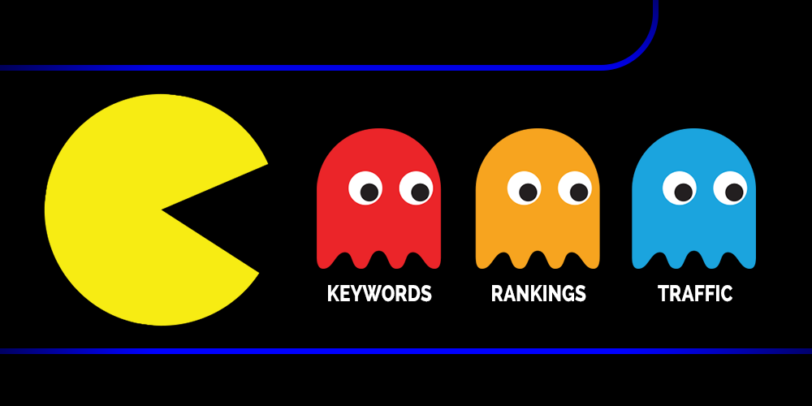Keyword cannibalization: what it is and how to prevent it
Keyword Cannibalization and SEO
The cannibalization of keywords is increasingly booming in online marketing. The word sounds somewhat strong and imposes a lot, but it does not have to be a problem if we know how to avoid it and how to bring it back. In this post we will learn more about cannibalization SEO with some of the most common examples that we find on the webs, and not only that, we will give guidelines to work on cannibalization and avoid it in the future. Keep reading!
What is the cannibalization of keywords?
In SEO, cannibalization is called appearing with several URLs for the same keyword .
It might seem that, if you create many contents on the same keyword, you will end up leaving before and even several times, but that practice is not something that is recommended, since it can be more harmful than positive.
For example, the less optimal result may appear, the possibility of expanding the keyword map is lost and by offering different URLs, the crawlers will dedicate Budget crawl resources to pages that are not as important, subtracting time to recognize the pages that really they matter
How to detect cannibalization?
Although there are tools such as Sixtrix, Ahrefs or Semrush that make our lives easier, detecting this competition between URLs and subsequent work can be quite tedious.
The way to detect it if you do not have tools at hand is quite obvious: select the most important keywords for the page , search them incognito and see if the search results are competing for more than one keyword. For this you can help write in the search engine the following line filled with your data:
site: www.skwebdesigningsolutions.com “Albuquerque SEO“
If, on the other hand, you can access SemRush, or any other tool that throws a list of organic keywords, it would only download the list, sort by keywords and see which are appearing by more than one URL, that’s where there to work .
Is it always positive to eliminate cannibalization?
If it is possible to avoid, a priori, it is positive to create a correct structure of keywords, but sometimes, when there are already several URLs of the site competing for the same keyword, we must be cautious on how to deal with it.
Before deciding what to do with that content it is important to keep in mind some aspects:
- Check traffic, conversions and the rebound of competing URLs.
- Check the incoming links of the URLs.
- Of course, check which URL is better positioned for the keywords that interest you and if any of them is also appearing for other important keywords.
Once we have this data, we can decide if the content is left as is, is optimized with different keywords or if it is better to delete part and stay with a single URL redirecting the rest.
What types of SEO cannibalization can we find?
We are going to talk about the types of cannibalization of the most common keywords in web pages.
Ecommerce cannibalization
One of the clearest cases that occur in ecommerce is usually the cannibalization of the page categories by product listings when doing more generic searches. This is normal because often these product URLs in particular receive more external mentions than the category ones, but it is also common because URLs are optimized with the same keywords as the main categories.
On the other hand, we can also find URLs with size parameters , color or size , etc., leaving above the canonical URL of the product.
In any of these cases, the user searching for a product would not be receiving all the information of the main category , but information of a specific one.
What to do to solve it?
In this case we recommend that the keywords chosen for the product sheets be much more specific than for the categories . In addition, whenever possible, we recommend that the tags are not indexable to avoid duplicities that reload the tracking.
Web cannibalization / blog
One of the most common cannibalizations is that of the web and the blog. It is very common that blogs, due to the creation of regular content, end up eating positions on the web . In this way it is easy that, when doing a search for a keyword with intention of purchase, it appears an article of the blog that speaks about a product instead of the own tab of the product.
Also the structure of the blogs can cause that the categories and tags of the blog can appear over the ones of the main page and finishes taking place duplicities .
What to do to solve it?
The most advisable thing is to create a map of keywords taking into account the web and the blog. Through this global map are defined which are the keywords for the main web and which are the secondary ones that help to expand or complete the information through the post.
The general recommendation is that the main page will cover more generic keywords and in the blog more long tail keywords . In addition, it is recommended that if the posts talk about a product or service of the main website, this content is linked correctly to favor the conversion.
Cannibalization within the same blog
The blog can compete with the main page as we have seen or with himself. When creating a lot of content it is inevitable that sometimes you will end up optimizing for similar or equal keywords .
What to do to solve it?
When a case of cannibalization between contents is detected, it is advisable to assess which of them is the most powerful , either by being better positioned, attracting more traffic and conversions or by being more updated. When we have that identified post, it should be completed with more information if necessary, creating a much higher quality content, and redirecting the discarded post to this principal .
Cannibalization SEO / SEM
Sometimes, when betting on SEO and SEM strategies, we can fall into the cannibalization of SEO from paid campaigns due to the selection of keywords. This happens in a very clear way when the investment of brand campaigns increases .
What to do to solve it?
Whenever possible, it is advisable that both services work hand in hand. From SEO you can tackle keywords that have a high cost for SEM and on the contrary , from SEM you can tackle keywords that are more difficult to reach with SEO or that require a faster positioning.
The joint work of these two services is the key to optimize budgets and avoid cannibalization.





